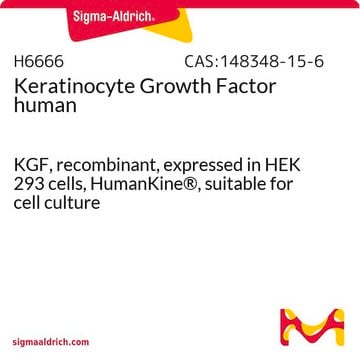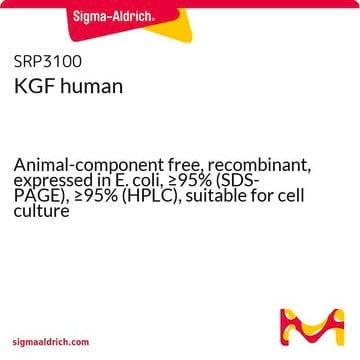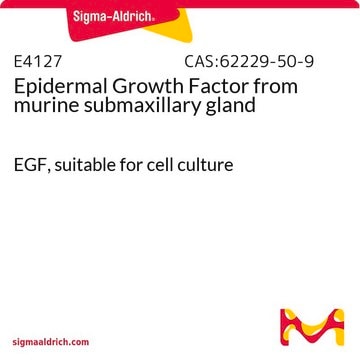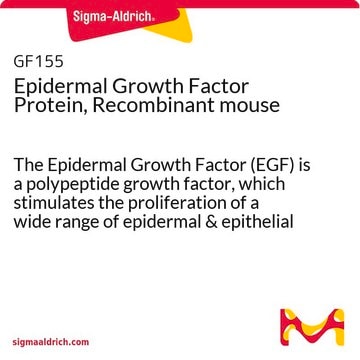K1757
Keratinocyte Growth Factor human
KGF, recombinant, expressed in E. coli, powder, suitable for cell culture
Sinónimos:
hFGF-7, hKGF, FGF-7, KGF
About This Item
Productos recomendados
origen biológico
human
Nivel de calidad
recombinante
expressed in E. coli
Análisis
≥95% (SDS-PAGE and HPLC)
formulario
powder
potencia
0.1-15 ng/mL ED50/EC50
calidad
endotoxin tested
mol peso
18.9 kDa
envase
pkg of 10 and 50 μg
técnicas
cell culture | mammalian: suitable
impurezas
1 EU/μg
Nº de acceso UniProt
temp. de almacenamiento
−20°C
Información sobre el gen
human ... FGF7(2252)
¿Está buscando productos similares? Visita Guía de comparación de productos
Descripción general
Aplicación
- as a component of epithelial growth medium
- as a positive control for antigen to determine the activity of the antibody
- to analyze the influence of KGF associated with thermo-sterilized carboxymethyl chitosan (NOCCts) in the reduction of pericardial adhesions
Acciones bioquímicas o fisiológicas
Forma física
Nota de análisis
Código de clase de almacenamiento
11 - Combustible Solids
Clase de riesgo para el agua (WGK)
WGK 3
Punto de inflamabilidad (°F)
Not applicable
Punto de inflamabilidad (°C)
Not applicable
Equipo de protección personal
dust mask type N95 (US), Eyeshields, Gloves
Certificados de análisis (COA)
Busque Certificados de análisis (COA) introduciendo el número de lote del producto. Los números de lote se encuentran en la etiqueta del producto después de las palabras «Lot» o «Batch»
¿Ya tiene este producto?
Encuentre la documentación para los productos que ha comprado recientemente en la Biblioteca de documentos.
Los clientes también vieron
Nuestro equipo de científicos tiene experiencia en todas las áreas de investigación: Ciencias de la vida, Ciencia de los materiales, Síntesis química, Cromatografía, Analítica y muchas otras.
Póngase en contacto con el Servicio técnico